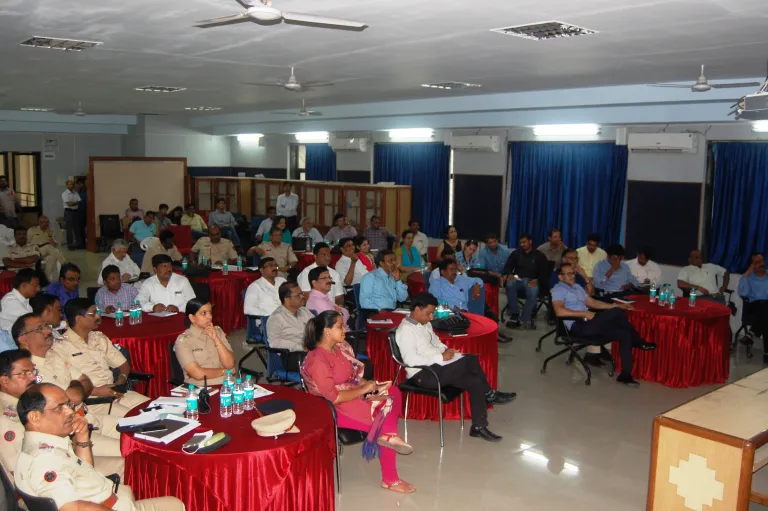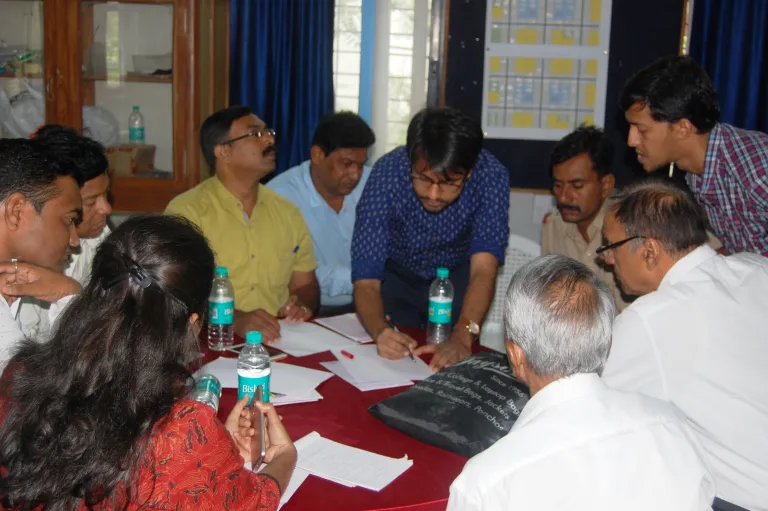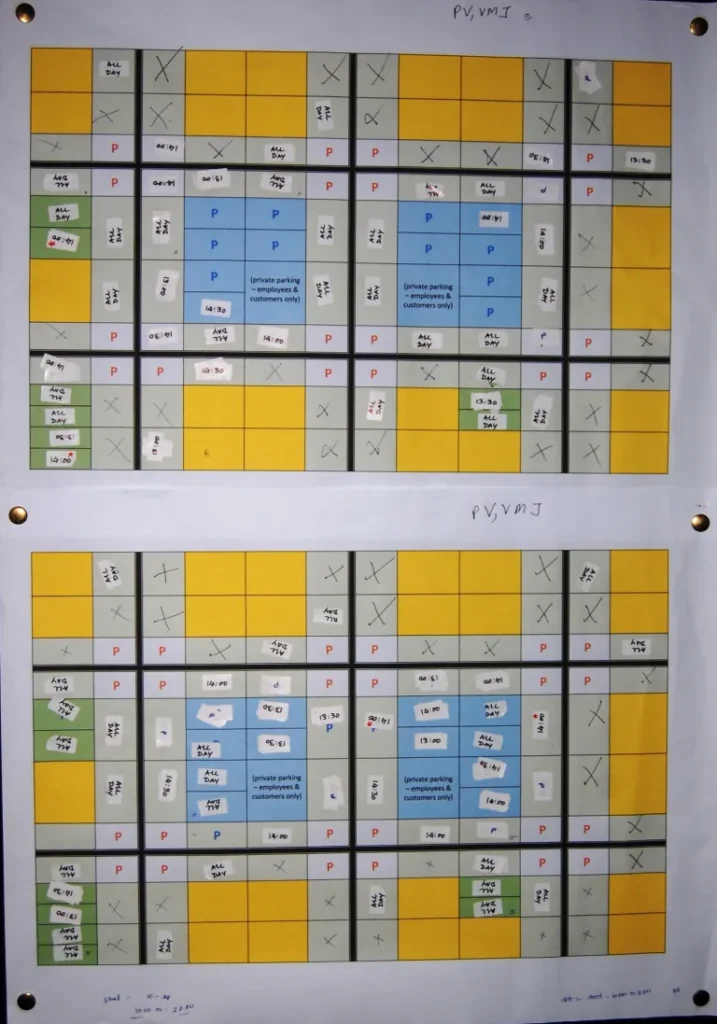“Let us seize the chance for parking success without excess!”, world-renowned parking management expert Dr.Paul Barter concluded. The occasion was Park It Right – a 2-day parking management workshop conducted by the Pune Municipal Corporation, with ITDP as knowledge partner; in association with GIZ, SUTP and TUMI*. The event was a part of the International Climate Initiative (IKI), supported by the German Federal Ministry for the Environment, Nature Conservation, Building & Nuclear Safety (BMUB). Participants included PMC engineers, officials from RTO & Traffic Police and representatives from various NGOs.
writer unknown
With the adoption of Pune’s parking policy in the offing and the city’s plans to implement better parking management, the workshop aimed at drawing lessons and inspiration from global best practices. Local government’s responsibilities regarding on-street parking management, regulation of parking supply under real-estate/urban planning powers, choices over city-owned off-street parking, and the relationship between the city government and private sector parking businesses were also discussed.

The workshop kicked off with Mr. Kunal Kumar, the Commissioner of Pune Municipal Corporation, speaking of the city’s firm course towards sustainable transportation, with great joy and pride. Various initiatives to encourage walking, cycling and the use of public transport has ensured that Pune has stayed on track. Speaking of dissuading the use of personal motor vehicles, the Commissioner said, “managing parking is an integral and essential part of our sustainable transport planning.”
The tone of the discussion thus set, Dr. Paul Barter took over to explain the basics of parking management. While most cities perceive a supposed lack of parking availability on the streets, there is generally excess supply off-street. The solution is thus not supplying more parking; it is, rather, better parking management.
To understand this concept better, the audience was asked to participate in a hands-on exercise to simulate parking in a commercial area between 8 am to 12.30 pm. Two scenarios were considered: one with minimal parking fee and management, and another with higher parking charges determined by supply and demand.

At the end of Scenario 1, the participants observed that with poor parking management, high-demand spots in the commercial area were occupied by shopkeepers and office-goers for better proximity, leaving the shoppers and other customers without a convenient spot. With an appropriate increase in parking fee as per demand, long-duration parking moved to the outer fringes where the fee was lower. This freed up many easily accessible parking slots within the commercial area for shoppers and restaurant-goers.
Another key takeaway was that the city does not have to wait for visible improvements in walking, cycling and public transport infrastructure changes to implement parking management. Basic parking reforms can help significantly reduce the parking chaos on the street. For instance, in Saudi Arabia, where on-street parking pricing was introduced not as a means towards sustainability but to tackle congestion in many stretches, the parking situation has improved considerably.
The simulation exercise thus helped the participants understand that parking management starting with simple steps should be the approach to the “parking crisis”, instead of increasing supply. Presenting examples from Taipei in Taiwan and Seoul in South Korea, Dr. Barter reinforced this fact and helped the audience decide good parking management goals.

Best global practices highlight that the location and quantity of parking supply play a crucial role in the success of parking management. Dr. Barter stressed that parking, both on-street and off-street, must always be provided in tightly controlled amounts, and charged based on demand.
Applying these lessons to well-known localities in Pune, it came to light that the existing parking spaces could be managed easily without increasing the capacity. “Our cities should aim to eventually shift towards sustainable transport solutions. But even for a car-centric city, parking management is an essential step in solving congestion on the street and for better use of road space. Let us start now Pune!”, said Shreya Gadepalli, Director – South Asia, ITDP.
With the parking policy expected to come into effect soon, and the city taking measures to start on-street parking management, along with various NMT-PT friendly initiatives, Pune is indeed firm on its sustrans course!
*GIZ – Deutsche Gesellschaft für Internationale Zusammenarbeit (GIZ) GmbH (English: German Corporation for International Cooperation GmbH); SUTP – Sustainable Urban Transport Project; TUMI – Transformative Urban Mobility Initiative
Results of hands-on exercise to simulate parking in a commercial area
